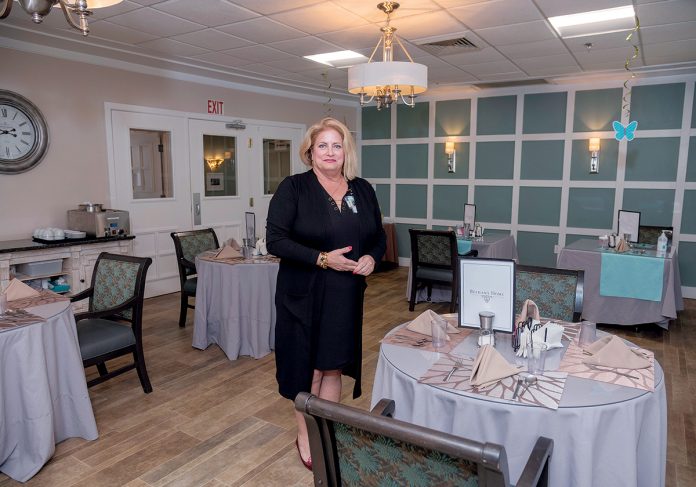Bethany Home of Rhode Island Inc., one of the oldest nursing homes in the state, provides skilled services and enrichment for its residents under a business model constantly impacted by health care reform.
It hasn’t been easy, says administrator Elizabeth Sarro, particularly given the changing climate of health care services, including cuts in state reimbursement that nursing homes have absorbed for the past several years and greater scrutiny of the time clients spend in the nursing facilities.
The nonprofit was established in 1892 with a mission of providing care to indigent women, she said. It has since evolved, accepting men, adding new services and broadening its service base to include private, paying residents, as well as those whose stays are covered by insurance or state programs.
The 32-bed home is small by industry standards. But according to the Medicare website, this year it maintains a five-star overall rating, out of five possible.
Sarro, who was the facility’s dietician for 18 years before becoming administrator five years ago, said the staff is stable and cares for each of the residents. The services now provided at the facility include skilled nursing, rehabilitation and comprehensive care, including helping residents transition from the home back to their apartments or houses.
The facility is certified by the state to accept patients who have dual eligibility for Medicaid and Medicare. But the beds cannot all go to Medicaid-qualifying individuals, because fiscally this would put the facility under, she said. “I lose $200 a day on every Medicaid patient.”
Located on the East Side of Providence, beds in the home are in demand.
“I get referrals every day from the hospital,” she said. “We have a lot of repeat business, because it’s all word of mouth.”
The most challenging aspect of running the home is the fiscal climate for nursing homes, in general, including the state reimbursement for residents.
“The greatest challenge is the reimbursement system and being able to provide what we need, follow the rules and regulations, which cost a lot of money, and provide the patient care,” she said.
If the quality of its star ratings drops, the federal government will reduce reimbursements, she noted, which can have an outsized impact on a smaller facility.
State reform has left its own challenges, including pressure to move residents back to home environments. “We are participating in a Medicare bundle of programs that the government is experimenting with and we have to get the patient out in a very short amount of time,” Sarro said. “You can’t keep them a month, even though the patient is 80, 90 or 95 and very fragile. They go home and get home care.”
And if they keep the patients longer than mandated?
“You’ll get cut out of the system because you cost too much money,” she said.
The solution, she added, has been to work very closely with home-care agencies to make sure residents are receiving services they need.
“We want to make sure they’re OK,” Sarro said.
OWNERS: Operated by board of directors
TYPE OF BUSINESS: Skilled nursing and rehabilitation facility
LOCATION: 111 South Angell St., Providence
EMPLOYEES: 84
YEAR ESTABLISHED: 1892
ANNUAL REVENUE: Approximately $5 million in 2017













